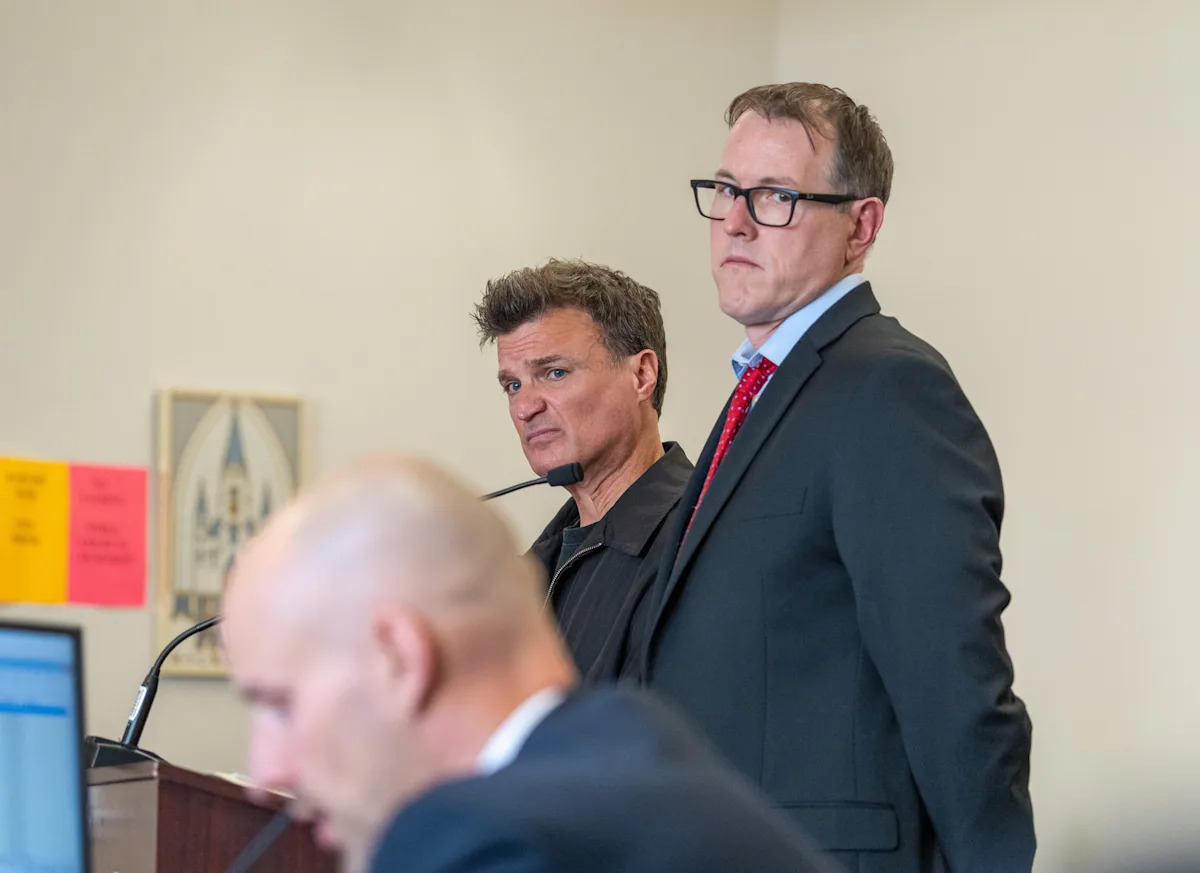A former Milwaukee public defender who was accused of paying clients for sex received 45 days in prison and two years of probation for his crimes.
Why it matters
- This case raises significant concerns about the ethics and conduct of legal professionals, particularly those in public service roles.
- It highlights the need for stricter oversight and accountability mechanisms within public defender offices.
- The case underscores the vulnerabilities faced by clients in the legal system, especially marginalized individuals.
In a troubling case that has drawn attention to ethical standards in the legal profession, a former public defender from Milwaukee has been sentenced to 45 days in prison for engaging in sexual acts with clients in exchange for payment. The defendant, Travis Schwantes, was also placed on two years of probation following his conviction, which has sparked discussions about the responsibilities of public defenders and the protection of vulnerable clients.
Schwantes, who served as a public defender, was accused of exploiting his position and the trust placed in him by clients, some of whom were already in precarious situations due to their legal troubles. The allegations surfaced during an investigation that revealed disturbing patterns of behavior, leading to his arrest and subsequent legal proceedings. The case has raised alarm bells within the legal community and among advocacy groups who are concerned about the implications of such actions on the integrity of the justice system.
During the court proceedings, it was revealed that Schwantes had engaged in sexual activities with several clients, offering payments in return. These actions not only breached ethical guidelines but also violated the trust necessary for effective legal representation. The prosecution argued that Schwantes had taken advantage of his clients’ vulnerabilities, emphasizing the power imbalance inherent in the attorney-client relationship.
As the case unfolded, it became clear that Schwantes' actions were not isolated incidents but rather part of a troubling pattern. Testimonies from victims highlighted the emotional and psychological toll of his misconduct, shedding light on the broader issue of client exploitation within the legal system. Advocates for legal ethics have pointed to this case as a critical reminder of the importance of maintaining professional boundaries and the need for comprehensive training for public defenders on ethical conduct.
In addition to the prison sentence, the court has mandated that Schwantes undergo counseling and participate in rehabilitation programs as part of his probation. This aspect of the sentencing aims not only to hold him accountable for his actions but also to encourage personal reform and prevent future misconduct. Legal experts have noted that such measures, while necessary, should be coupled with systemic changes that address the underlying issues within public defender offices.
The ramifications of Schwantes' actions extend beyond his individual case. The Milwaukee public defender's office is now facing scrutiny regarding its oversight and training protocols. Legal professionals and advocates are calling for reforms to ensure that public defenders are equipped with the necessary tools to avoid ethical breaches and to provide their clients with the highest standard of care and representation.
Furthermore, this incident has sparked a larger conversation about the challenges faced by public defenders, who often work under significant pressure and with limited resources. Many public defenders are tasked with managing heavy caseloads, which can lead to burnout and ethical lapses. Advocates argue that addressing these systemic issues is crucial for preventing future cases of misconduct and for restoring public trust in the legal system.
In light of this case, legal organizations and advocacy groups are urging greater oversight and the implementation of best practices within public defense systems. They emphasize the need for ongoing education and training focused on ethical behavior, client rights, and the importance of maintaining professional boundaries.
As Schwantes begins his sentence, the legal community watches closely, hoping that this case will serve as a catalyst for significant reforms aimed at ensuring the integrity of the public defense system and safeguarding the rights of clients. The outcome of this case could have far-reaching implications, potentially shaping policies and practices that govern public defenders across the nation. The incident serves as a stark reminder of the critical need for accountability within the legal profession and the ongoing fight to protect the most vulnerable individuals in the justice system.











